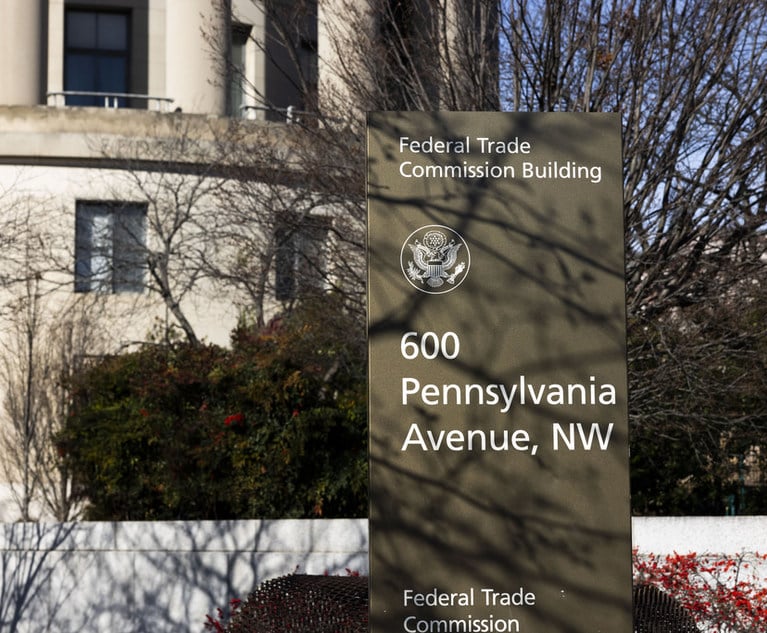American International Group–as well as the politiciansresponsible for supervising its federal bailout–struggled torespond to a firestorm of criticism leveled against the beleagueredcompany last week, generated by a brouhaha involving retentionbonuses as well as controversy over its payments to variouscounterparties here and abroad.
| Public rage–channeled throughCongress, the White House and the media–focused primarily on $165million in bonus payments to employees of AIG's Financial Productsunit, which has been blamed for undermining the company's solvencyand nearly taking down the entire financial system with recklesscredit default swaps to cover subprime mortgage-basedsecurities.
Public rage–channeled throughCongress, the White House and the media–focused primarily on $165million in bonus payments to employees of AIG's Financial Productsunit, which has been blamed for undermining the company's solvencyand nearly taking down the entire financial system with recklesscredit default swaps to cover subprime mortgage-basedsecurities.
"For the American public, AIG now stands for Arrogance,Incompetence and Greed," said Rep. Paul Hodes, D-N.H.
|AIG Chairman and Chief Executive Officer Edward Liddy–appointedby the Bush administration to run AIG after its bailout lastfall–said last week that he agreed to pay the bonuses only because"I am trying to prevent an uncontrolled collapse" of the FinancialProducts unit while it reconciles its controversial derivativesbusiness.
|Mr. Liddy–in sworn testimony before the Capital MarketsSubcommittee of the House Financial Services Committee–announcedthat in an effort to sooth public anger at the AIG bailout, he hasasked the employees of AIG Financial Products "to step up and dothe right thing."
|Specifically, he said he had asked those who received retentionpayments of $100,000 or more to return at least half of thosefunds. In response, he said, some had already stepped forward andoffered to give up 100 percent of their payments.
|He said he understood the reason for public anger at the bonuspayments after the government agreed to provide AIG with $173billion in cash to keep it solvent.
|However, he asked for patience, arguing that the only way forthe government to get its money back was to continue the course hehas undertaken at AIG.
|He also said AIG is working with federal agencies and New YorkAttorney General Andrew Cuomo to get as many employees as possiblewho received the payments to return them. "Obviously, we aremeeting today at a high point of public anger. I share that anger,"he said.
|Mr. Cuomo–in a letter to Rep. Barney Frank, D-Mass., who chairsthe House Financial Services Committee–reported that undercontracts written in March 2008:
|o 73 individuals received bonuses of $1 million or more.
|o 11 of the individuals who received "retention" bonuses of $1million or more are no longer working at AIG, including one whoreceived $4.6 million.
|o The top recipient received more than $6.4 million.
|o 22 individuals received bonuses of $2 million or more, andcombined they received more than $72 million.
|Earlier in the week, President Barack Obama ordered TreasurySecretary Tim Geithner to "pursue every legal avenue" to blockpayment of the bonuses. "This is a corporation that finds itself infinancial distress due to recklessness and greed," said PresidentObama. "How do they justify this outrage to the taxpayers who arekeeping the company afloat?"
|At the same time, Mr. Cuomo launched his own inquiry, demandingthat AIG reveal all material information about the bonuses todetermine whether they "may be considered fraudulent conveyancesunder New York law."
|Prior to his congressional testimony, Mr. Liddy had said AIG wasbound by contract to pay the bonuses and would face "serious legalas well as business consequences for not paying." He added that thefirm cannot attract top talent "if employees believe theircompensation is subject to continued and arbitrary adjustment bythe U.S. Treasury."
|Mr. Geithner said Treasury was working with the JusticeDepartment to determine "what avenues" could be employed to recouptaxpayer dollars used to pay the AIG bonuses.
|He also said that, to ensure taxpayers are compensated for anymonies "we cannot recover," the government will "impose on AIG acontractual commitment to pay the Treasury from the operations ofthe company the amount of the [$165 million] retention awards justpaid."
|Moreover, he added, "we will deduct from the $30 billion inassistance an amount equal to the amount of these payments,"referring to the most recent commitment of additional governmentaid.
|At the same time, Mr. Geithner said that in criticizing thebonuses paid to AIG executives, Americans should not "lose sight"of the fact that under current law, federal officials don't havethe authority to take control of troubled financial institutionsthat aren't banks.
|Even the tough guidelines on executive pay put into the economicstimulus bill by Sen. Chris Dodd, D-Conn., "allow for the paymentof contracts signed before the act went into effect," Mr. Geithnernoted.
|"This situation dramatically underscores the need to adopt, as acritical part of financial regulatory reform, an expanded'resolution authority' for the government to better deal withsituations like this," Mr. Geithner wrote in a letter tocongressional leaders.
|"Such a resolution authority" for regulating financialinstitutions like AIG, whose failure would pose a significant riskto the financial system, he said, should include a comprehensiveand broad set of tools that would enable the government to regulateAIG in a way that will protect taxpayer interests and innocentcustomers.
|Mr. Geithner also said that he had received a commitment fromMr. Liddy that the company would work to "scrap or cut" hundreds ofmillions of dollars in additional bonus payments due this year andin the future. He added that the AIG CEO has "committed himself todo this on terms that are consistent with the executivecompensation guidance for firms receiving government aid mandatedby provisions of the stimulus act enacted by Congress lastmonth."
|Maurice Greenberg, AIG's former CEO, said the executives whorecently received bonuses do not deserve them because they lostmoney for the company.
|In a March 17 interview on "The Charlie Rose Show," Mr.Greenberg said there was no reason to provide an incentive toretain these executives because they have nowhere to go, and ifthey did leave they "could have been replaced very quickly."
|In the House, Rep. Steve Israel, D-N.Y., introduced legislationto impose a 100 percent tax on the bonuses. In a statement, he saidthat "if we can't kill the bonuses, we'll tax the bonuses."
|In the Senate, Sen. Max Baucus, D-Montana, who chairs the SenateFinance Committee, said at a hearing that he is draftinglegislation to claw back "some" of the bonus money. The tax couldbe as high as 91 percent, sources said.
|"We are looking at tax options that will reclaim the outrageousbonuses paid by AIG," Sen. Baucus said, adding that the measurewill be unveiled shortly. "What's the highest excise tax we canimpose that will stand up in court?"
|Sen. Dodd, chair of the Senate Banking Committee, said that theAmerican people are "outraged–and I am as well," adding that "thechairman of the Federal Reserve has said that the government'sefforts to prevent AIG from failing outright are akin to a neighborsmoking in bed and setting the house on fire."
|"With these bonuses, what we are seeing is the folks responsiblepicking the pockets of the firefighters and stealing the hubcapsoff the fire truck. It's outrageous," he added.
|Sen. Charles Grassley, R-Iowa, was even more animated. He toldCedar Rapids, Iowa, radio station WMT that AIG executives should"follow the Japanese example and come before the American peopleand take that deep bow and say, 'I am sorry,' and then either doone of two things: resign or go commit suicide." He laterapologized for his reference to suicide.
|In his congressional testimony, Mr. Liddy said that "as abusinessman of some 37 years, I have seen the good side ofcapitalism. Over the last few months, in reviewing how AIG had beenrun in prior years, I have also seen evidence of its bad side."
|In his comments, Mr. Liddy portrayed the problems at AIG in thestarkest terms as he sought to cool outrage in Congress and acrossthe country over the bonuses, which AIG insisted it must pay tomeet contractual obligations. "Mistakes were made at AIG on a scalefew could have ever imagined possible," he said.
|The most critical of those was the creation of a credit defaultswap portfolio, "which eventually became subject to massivecollateral calls that created a liquidity crisis for AIG," hesaid.
|Specifically, he testified, although AIG has wound down morethan $1 trillion in the portfolio of AIG Financial Products–whichhe characterized as "the unit that is at the root of our financialproblems"–he said that portfolio remains very large, at some $1.6trillion, "and it continues to contain substantial risk." (For moreon the controversy over AIG's payments to counterparties, see page21.)
|"The financial downside for taxpayers is potentially very largeand very real, and that's why we're winding this business down," heexplained.
Want to continue reading?
Become a Free PropertyCasualty360 Digital Reader
Your access to unlimited PropertyCasualty360 content isn’t changing.
Once you are an ALM digital member, you’ll receive:
- All PropertyCasualty360.com news coverage, best practices, and in-depth analysis.
- Educational webcasts, resources from industry leaders, and informative newsletters.
- Other award-winning websites including BenefitsPRO.com and ThinkAdvisor.com.
Already have an account? Sign In
© 2024 ALM Global, LLC, All Rights Reserved. Request academic re-use from www.copyright.com. All other uses, submit a request to [email protected]. For more information visit Asset & Logo Licensing.








